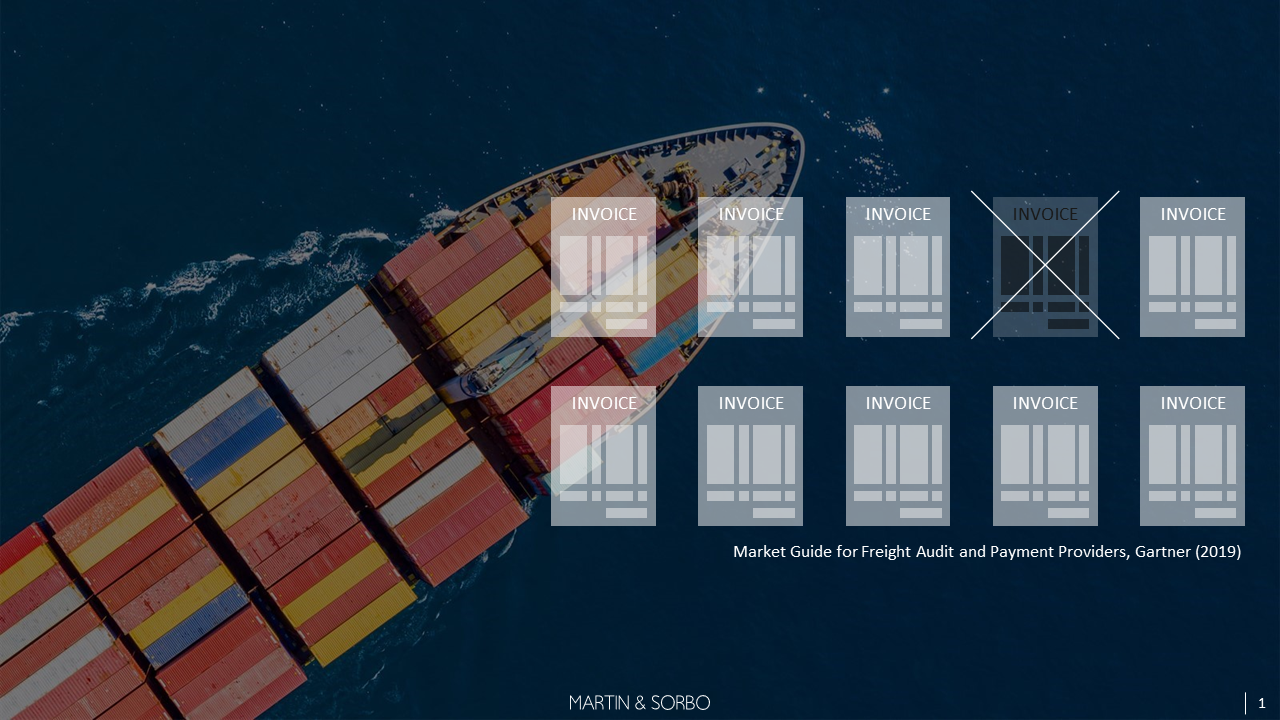
Between 1-2% of the total freight spend is overcharged
Recover Overcharged Invoices from Ocean Carriers and Forwarders: Unlock Refunds up to 3 Years Back with AI-Powered Automation.
Our AI is trained on all the major ocean carriers and forwarders. This enables us to identify payment and billing errors for our clients from day one.
Ocean freight experts train our AI engine to extract every element of an ocean freight invoice.

ONE OUT OF TEN FREIGHT INVOICES
IS WRONG
Main reasons for incorrect billing - it’s still a manual process!
“Billing mistakes can occur due to manual processes, complex data, varying tariffs, communication challenges, and exchange rate fluctuations. We're committed to continuous improvement and providing accurate invoices for our valued clients.”
— Key Account Manager, Ocean carrier
“Our accounts payable team lacks expertise in the complexity of ocean freight invoices. Lacking expertise in ocean freight invoices leads to overpayment, inaccurate reporting, operational disruptions, increased workload, and strained relationships with carriers. ”
— Finance Manager, Freight Buyer
“Logistics managers, overworked and understaffed, face challenges in approving ocean freight invoices, resulting in potential overpayment, reporting inaccuracies, disruptions, and strained carrier relationships. ”
— Logistics Manager, Freight Buyer
Exchange Rates
Currency Exchange Rates Are Costing You More Than You Think, Ocean carriers and freight forwarders sometimes use wrong exchange rates when billing their customers
Audit Exchange Rates
Ocean carriers and freight forwarders often sell services in USD, while local costs and surcharges are billed in the currency of the origin or destination country. Multiple currency conversions are necessary, increasing the risk of errors and discrepancies in exchange rates. Auditing exchange rates safeguards against potential inaccuracies, ensuring fair pricing and cost optimization.
Markup
Ocean carriers and freight forwarders frequently apply markups to exchange rates, inflating costs for customers. Some carriers openly list their markups, but others lack transparency, making it challenging for shippers to understand the true expenses. Our audits reveal markups ranging from 1-11%, ensuring transparent pricing and cost optimization for your shipping needs.
Recover Overcharges
A yearly spend of 10 MUSD will result in a credit note between 300 and 600 TUSD. Companies Can Recover Overcharges from Up to 3 Years Ago.
Companies have the legal right to claim back overcharges from service providers up to three years after the invoice date. This extended timeframe allows businesses to identify and rectify past billing errors, ensuring fairness and financial accuracy.
Contact us to learn how.

WE WILL DO THE WORK
Reviewing Shipment data, identifying overspend and recovering working capital - we do the work from end to end.
Provide Information
Freight invoices and transport contracts or rate agreements from the client.
Extract information
We use advanced AI specialized to extract all relevant information from ocean freight invoices.
Audit
invoice
The information from the invoices will be processed and linked with the freight agreements. The result is a full overview of discrepancies.
Recover overcharging
Based on our findings, M&S will proactively engage with the transportation provider to claim the overcharged amount. Our dedicated team ensures a swift and effective recovery process, securing your financial interests.
THE PROCESS
BUSINESS MODEL
The assignment is carried out based on a transaction-based fee per invoice, or full contingency basis with payment only after the claimed amount is in the client’s bank account.
No Cure - No Pay. Contact us directly to schedule a free introduction meeting.

TOP 4 REASONS FOR WRONG INVOICES
1: Double Billing, 2 invoices arrive on different dates e.g. because a surcharge is added and the full transport is billed again.
2: Date cusp issue, Delayed shipments with Actual Departure in another time period with a different rate validity than estimated.
3: Surcharges & Currency, Not agreed or wrongly billed surcharges or currency exchange rates/rates in general.
4: Quantity of containers, The number of containers billed does not match the actual shipped containers or equipment type.



